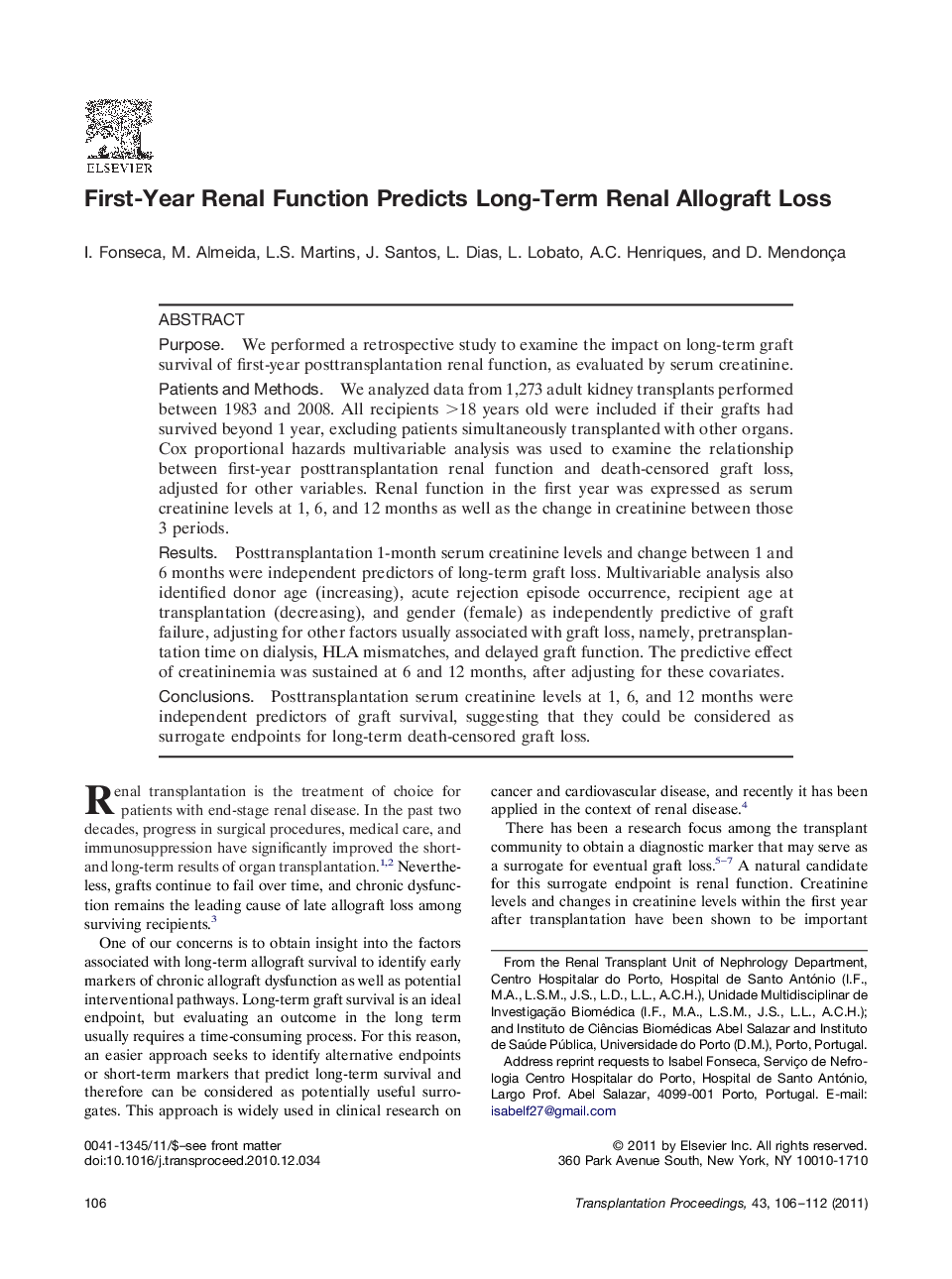| Article ID | Journal | Published Year | Pages | File Type |
|---|---|---|---|---|
| 6248852 | Transplantation Proceedings | 2011 | 7 Pages |
PurposeWe performed a retrospective study to examine the impact on long-term graft survival of first-year posttransplantation renal function, as evaluated by serum creatinine.Patients and MethodsWe analyzed data from 1,273 adult kidney transplants performed between 1983 and 2008. All recipients >18 years old were included if their grafts had survived beyond 1 year, excluding patients simultaneously transplanted with other organs. Cox proportional hazards multivariable analysis was used to examine the relationship between first-year posttransplantation renal function and death-censored graft loss, adjusted for other variables. Renal function in the first year was expressed as serum creatinine levels at 1, 6, and 12 months as well as the change in creatinine between those 3 periods.ResultsPosttransplantation 1-month serum creatinine levels and change between 1 and 6 months were independent predictors of long-term graft loss. Multivariable analysis also identified donor age (increasing), acute rejection episode occurrence, recipient age at transplantation (decreasing), and gender (female) as independently predictive of graft failure, adjusting for other factors usually associated with graft loss, namely, pretransplantation time on dialysis, HLA mismatches, and delayed graft function. The predictive effect of creatininemia was sustained at 6 and 12 months, after adjusting for these covariates.ConclusionsPosttransplantation serum creatinine levels at 1, 6, and 12 months were independent predictors of graft survival, suggesting that they could be considered as surrogate endpoints for long-term death-censored graft loss.
